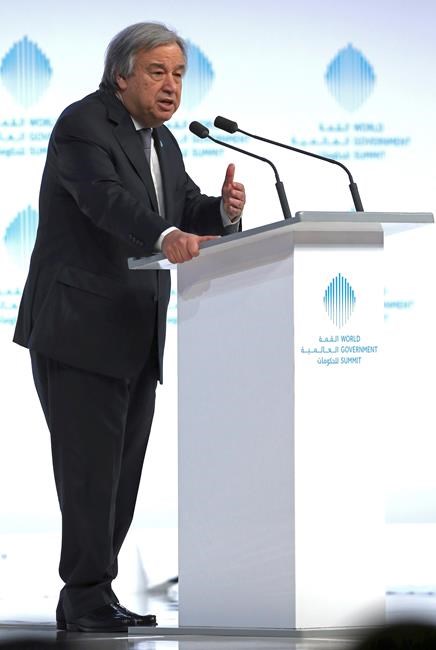
UN chief ‘deeply regrets’ US blocking his Libya envoy pick
DUBAI, United Arab Emirates – The United Nations secretary-general said Monday he “deeply regrets” the United States’ decision to block a former Palestinian prime minister from leading the world body’s political mission in Libya.
Antonio Guterres said Salam Fayyad was “the right person for the right job at the right moment,” stressing that the Palestinian politician “has a competence that nobody denies and Libya requires.”
“I think it is a loss for the Libyan peace process and the Libyan people I’m not able to appoint him,” Guterres said.
Libya has been gripped by war and unrest since its 2011 uprising and the killing of dictator Moammar Gadhafi.
“Libya has been a factor of contamination to the peace and stability in a wide area … and to bring an end to the conflict in Libya is in everybody’s interest,” Guterres added.
The U.S. blocked Fayyad’s appointment on Friday, saying it was acting to support its ally Israel.
The U.N. chief declined to directly criticize the U.S. or President Donald Trump in his remarks at the annual World Government Summit in Dubai. But Guterres said he did “not see any valid reason” for the U.S. action.
U.N. deputy spokesman Farhan Haq wouldn’t say whether the Trump administration initially gave a green light and then changed its mind on Fayyad’s appointment.
Haq told reporters at U.N. headquarters in New York that the U.N. consults “broadly” on appointments.
Guterres’ decision to put forward Fayyad’s name for the Libya job “was based on the information and the understandings he had at the time,” Haq said. “We believed we had the understandings, but we did not.”
Join the Conversation!
Want to share your thoughts, add context, or connect with others in your community?
You must be logged in to post a comment.

















